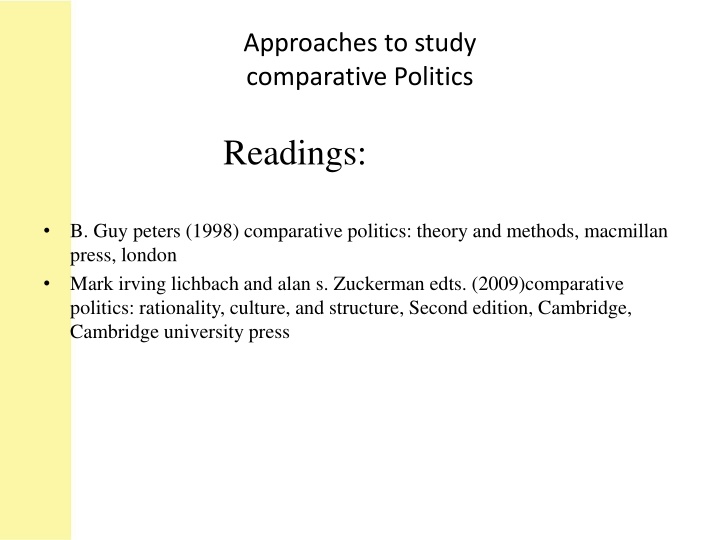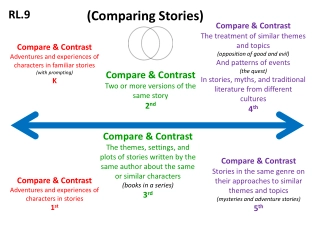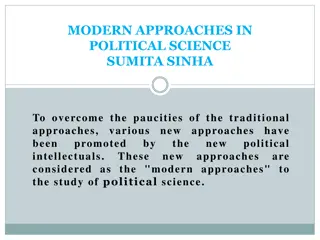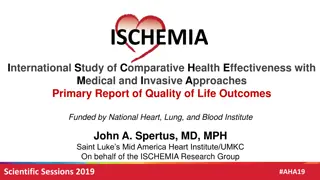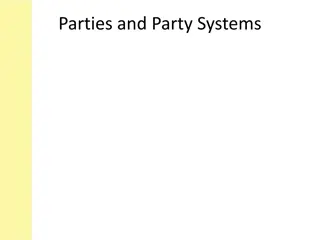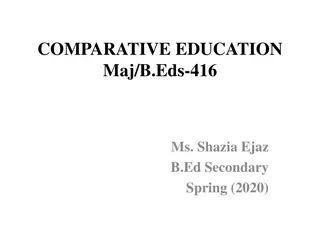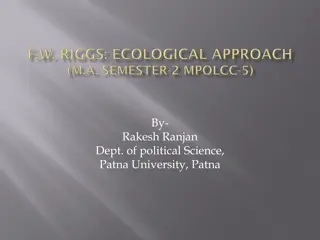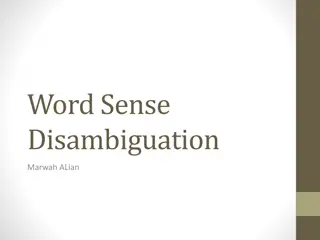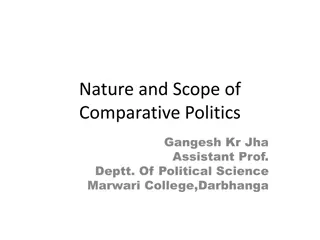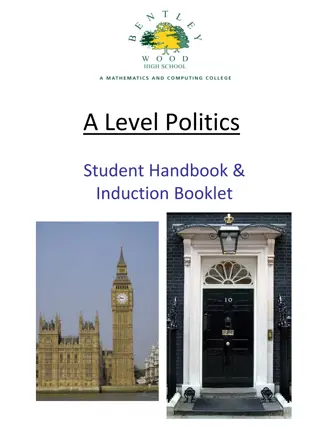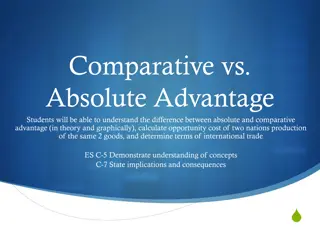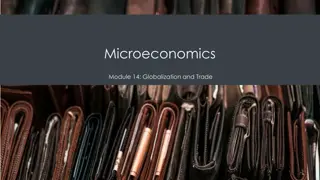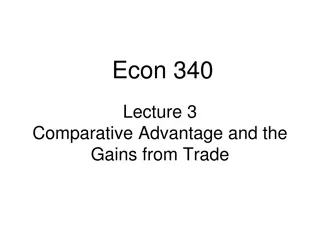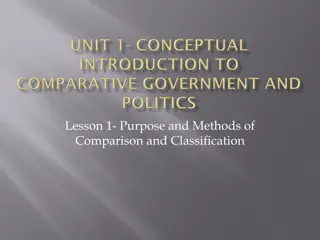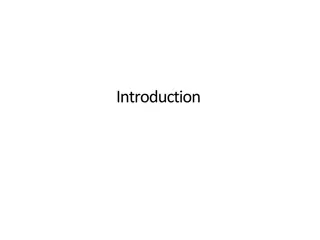Approaches to Study Comparative Politics: Traditional vs. Modern Perspectives
This chapter discusses the importance of approaches in the study of comparative politics, categorizing them into traditional and modern perspectives. Traditional approaches include philosophical, historical, and traditional institutional approaches, highlighting their strengths and limitations. Modern approaches post-1950s, such as system approach, structural-functional analysis, and political culture approach, are also examined. The emergence of new institutional approaches like historical institutionalism, rational choice institutionalism, and sociological institutionalism is explored, emphasizing their significance in understanding political systems.
Download Presentation

Please find below an Image/Link to download the presentation.
The content on the website is provided AS IS for your information and personal use only. It may not be sold, licensed, or shared on other websites without obtaining consent from the author.If you encounter any issues during the download, it is possible that the publisher has removed the file from their server.
You are allowed to download the files provided on this website for personal or commercial use, subject to the condition that they are used lawfully. All files are the property of their respective owners.
The content on the website is provided AS IS for your information and personal use only. It may not be sold, licensed, or shared on other websites without obtaining consent from the author.
E N D
Presentation Transcript
Approaches to study comparative Politics Readings: B. Guy peters (1998) comparative politics: theory and methods, macmillan press, london Mark irving lichbach and alan s. Zuckerman edts. (2009)comparative politics: rationality, culture, and structure, Second edition, Cambridge, Cambridge university press
This chapter discusses the importance of the approach in the study of comparative politics. An approach is like an anchor or viewpoint or a way of thinking that provides tools to understand, analyse, evaluate and compare the subject of study. Various approaches can be categorized as either traditional or modern, or the new approaches. The chapter analyses both traditional approaches and new or modern approaches. A critical analysis of the approaches is made to know both the advantages and disadvantages, and usefulness of their application to comparative politics.
Traditional Approach Some of the traditional approaches that the chapter covers are philosophical approach, historical approach and traditional institutional approach. The traditional approaches highlighted on philosophical principles, historical context and traditional governing institutions such as study of the constitutions, laws and formal organizations or institutions. The traditional approaches have certain limitations such as the philosophical approach is highly normative, descriptive and prescriptive. Historical approach is criticized that political history is often simply a record of great events, rather than a comprehensive account of total political activities. Traditional institutionalism, despite its strengths, has certain limitations such as it remains essentially static. The traditional approach, Macridis claimed, had ignored dynamic factors which explain growth and change in a political system.
Modern Approach In the post-1950s, modernization , decolonization, liberation , politicaldevelopment and so on became new issues of concern. A need to study the politics of non-West societies was emphasized. New approaches such as system approach, structural functional analysis and political culture approach have been covered in the chapter. The modern approach, new institutional approach, is also discussed. o Historical institutionalism o The rational choice institutionalism o Sociological institutionalism
New Institutional Approach Historical institutionalism emerged as a prominent approach during the 1960s and 1970s. The historical institutionalists define institutions as the formal or informal procedures, routines, norms and conventions embedded in the organizational structure of the polity or political economy. Rational choice institutionalism implies that individual actors are relevant actors, have a fixed set of preferences or tastes, behave entirely instrumentally so as to maximize the attainment of these preferences and therefore do extensive calculation. Sociological institutionalism argued that the institutional forms and procedures used by modern organizations were not adopted simply because they were most efficient for the task at hand instead these forms and procedures should be seen as culturally specific practices.
New Institutional Approaches: Limitations Historical institutionalists are more likely to assume a world in which institutions give some groups or interests disproportionate access to the decision-making process, and, rather than emphasizing the degree to which an outcome makes everyone better off, they tend to stress how some groups lose while others win. Rational choice institutionalists are unable to provide an adequate predictive theory of action since it does not specify how preferences come about and why they vary from individual to individual. One of the weaknesses of this approach is that it does not explain how institutions originate and how the culture gets operationalized.
Traditional or Modern: Which Approach to Choose? Triangulation is used to combine the advantages of both the qualitative and quantitative approaches. Each method offers specific advantages as well as disadvantages. Recent developments in social sciences have argued that the two types of categories of approaches should not have a separate-but-equal status and should instead interact. Triangulation is not aimed merely at validation, but at deepening and widening one s understanding. It is vital to get support of interdisciplinary research and its application in various disciplines such as comparative politics.
